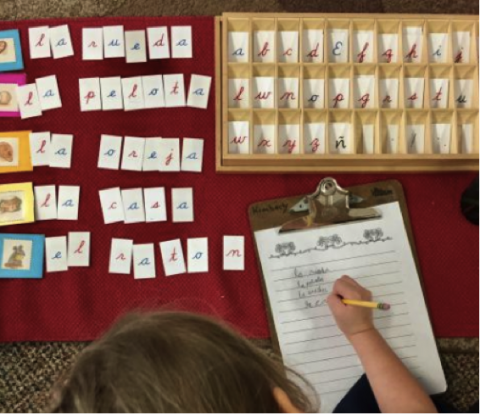
Raising Bilingual Kids is as Easy as…
When my husband and I married in 2006 we were anxious to start a family and were intent on raising our kids to be fluent in English and Spanish. We had strong ideas on how we would accomplish this, and after all, since we are both native speakers of our respective languages we figured it would be easy. We read books, talked to those with experience, and vowed our kids would speak both languages equally. They have family in America who only speak English and family in Ecuador who only speak Spanish. They had to!
Our oldest son, now 10, was immersed in Spanish. The implementation of this was easy for my husband because he was the native Spanish speaker. For me, the mom, I found it more challenging. The everyday conversations were easy. Singing to my child, comforting him, reading to him, were much harder for an exhausted first-time mom. Of course, I knew songs in Spanish and could read him books in Spanish, but it didn’t feel the same. “Mothering” him in English just felt right! At this point we moved to “dad speaks Spanish” and “mom speaks English” so he would be exposed to both languages.
Our son’s first words were in English. Some Spanish ones soon followed, but he was much more inclined to speak English. Then, he went to pre-school. All English-speaking preschool. Again, we changed our methods. This time we changed to speaking only Spanish at home and English outside of the home. Our son continued to favor English, but he understood us when we spoke Spanish so we felt we were on the right track.
Our second son arrived in 2011 and I went back to work after 8 weeks. He was in an all English-speaking daycare. This was an additional challenge because he would not receive the exposure our first son had. How would he learn? What if we had one bilingual kid and the second one never learned? We beat ourselves up a bit, but tried to follow the same methods we had with our oldest.
Fast forward to 2017 and we have a 10-year-old who is quasi-bilingual. He understands a great deal of Spanish, but speaks in short sentences. Our 6-year-old, on the other hand, has very little interest in speaking Spanish with us and responds to most questions with a simple “si”, “no” or “no se.” However, when with family who only speak Spanish he can remarkably ask for food and get along pretty well.
Are my kids bilingual? Not exactly. Will they be? Absolutely! (at some point!) I remind myself that neither my husband nor myself were bilingual as kids. We were in our late teens/early twenties before we were immersed in another language and now we are both fluent! Raising bilingual kids has been one of my most unexpected challenges as a mom because I initially thought it would be easy. It’s not. It is a daily challenge. But, so is bedtime!



The views and opinions expressed in this post are those of the author(s) and do not necessarily reflect those of MomsRising.org.
MomsRising.org strongly encourages our readers to post comments in response to blog posts. We value diversity of opinions and perspectives. Our goals for this space are to be educational, thought-provoking, and respectful. So we actively moderate comments and we reserve the right to edit or remove comments that undermine these goals. Thanks!